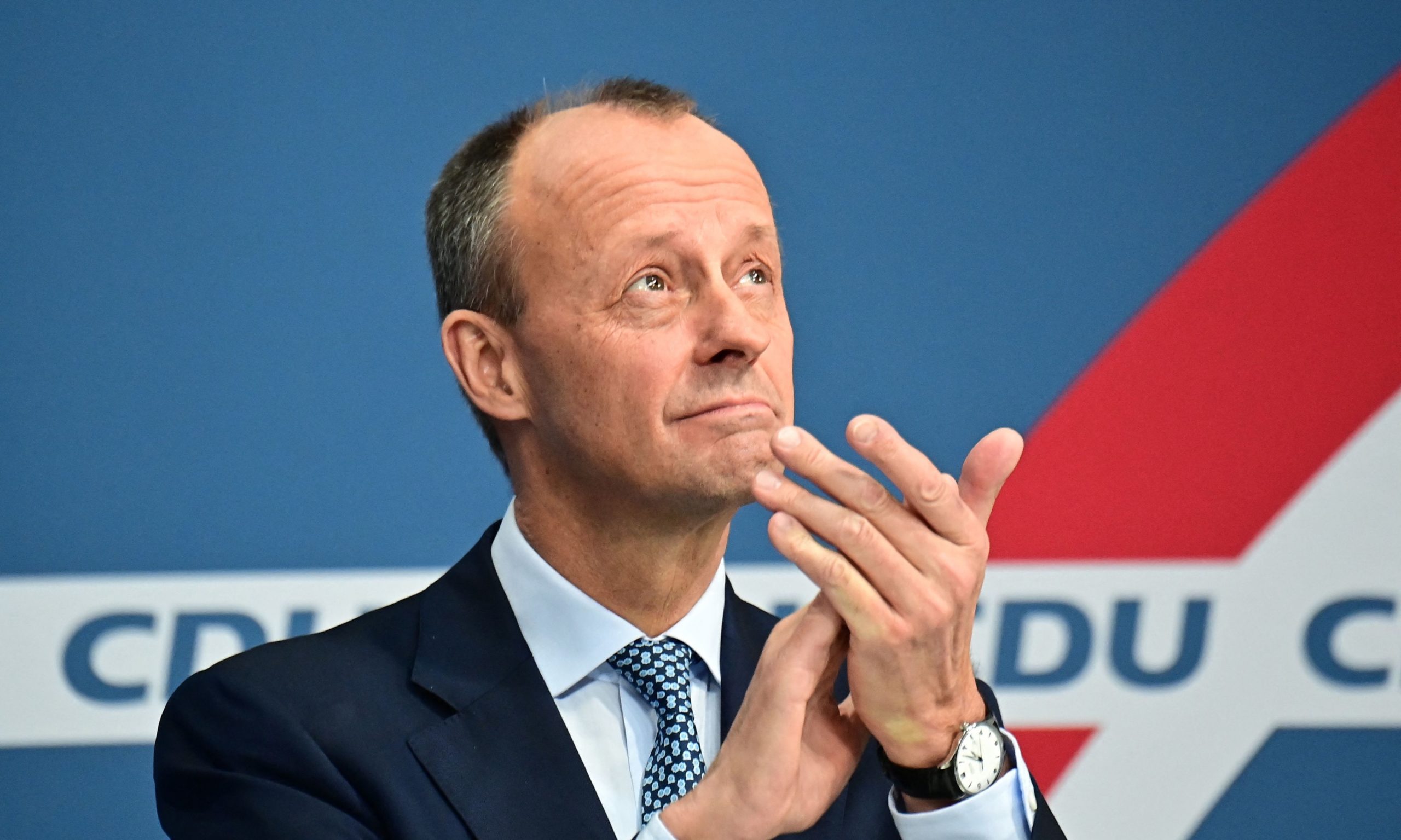It’s not often you see conservative hardliners cry in public, but Friedrich Merz visibly fought back tears last weekend as he accepted the leadership of Germany’s Christian Democratic Union (CDU) at their party conference. For years, Merz had been one of Angela Merkel’s staunchest critics — from within her own ranks. Now he says he wants to lift the party and Germany out from under the ex-chancellor’s “inaction and lack of leadership that has for years enveloped the country like a carpet of fog.”
Angela Merkel became chair of the CDU in 2000. After such a long period under her leadership, the party is now crying out for change. The conference delegates confirmed an earlier vote for Merz by the grassroots members with an astonishing 95%, driving the man to tears. They had previously rejected him twice for this role, but now, it seems, the party collective are putting their trust in him.
Merz is under no illusion that there is a lot to do. The 66-year old lawyer has called the state of conservative politics in Germany “sobering”: under Merkel’s centrist political instincts, her party, originally a socially conservative and economically liberal force, has become increasingly social democratic in outlook, blurring the lines with the rival SPD party. This tendency found its pinnacle in the grand coalitions which Merkel ran for three out of her four terms. It became so hard to distinguish the two parties that Olaf Scholz of the SPD was able to win the 2021 election on a continuity ticket, selling himself as a like-for-like Merkel replacement despite standing for a rival party.
Merz has been critical of his party’s shift to the centre-Left throughout, building a reputation as an old-fashioned hardliner who pokes fun at the politically correct while unflinchingly criticising the “appalling image projected by the government” led by his own party.
Lacking profile throughout Merkel’s long tenure, in 2021, the CDU lost nearly two million voters to the SPD and over 1 million each to the Greens, the Free Liberals (FDP) and into non-voting apathy. Over 400,000 votes also went to the Alternative for Germany (AfD) on the far Right. “But such times are over,” Merz promised the hopeful conference, as he promised a period of ‘‘renewal’. The message seems to have cut through. In a Spiegel survey, two thirds of respondents agreed that Merz election as chair constituted a ‘clear break from the Merkel era’.
If Merz can pull this off and reshape the CDU as the opposing pole to the Left-liberal coalition led by Olaf Scholz, he can offer a real alternative for voters. But the new leader’s biggest obstacle in creating meaningful opposition and reshaping the party may be himself. A staunch Catholic, multimillionaire and former BlackRock executive, he can come across as aloof, even arrogant. In his long political life which spans back to the beginning of his parliamentary career in 1994, he has never been a particularly charismatic leader. As a result, recent surveys still show low approval ratings of only 17% and the majority of people do not believe that he can pull the CDU out of its current crisis.
Interestingly, Angela Merkel herself seems all in favour of a de-Merkelisation of the party. She has declined the honorary CDU presidency and even an invitation to dinner with Merz. Instead, it seems, she is keen to preserve her energy and time for a political memoir which she intends to co-write with her long-standing adviser Beate Baumann.
With Merkel gone for good, Merz is keen to find new meaning in a party whose “drawers are empty” as he put it. Everything the CDU once stood for — pro-nuclear policy, military security and traditionalism — has been hollowed out over the last two decades. Voters, who shared these more conservative values, have had nowhere to go for over twenty years. In addition, a whole generation of young Germans grew up never knowing that ‘conservatism’ does not equal ‘far-Right’ and was once regarded as a legitimate option on a democratic political spectrum. Whether Merz is the man to rebalance German politics remains to be seen, but the void is there for someone to fill.











Join the discussion
Join like minded readers that support our journalism by becoming a paid subscriber
To join the discussion in the comments, become a paid subscriber.
Join like minded readers that support our journalism, read unlimited articles and enjoy other subscriber-only benefits.
Subscribe